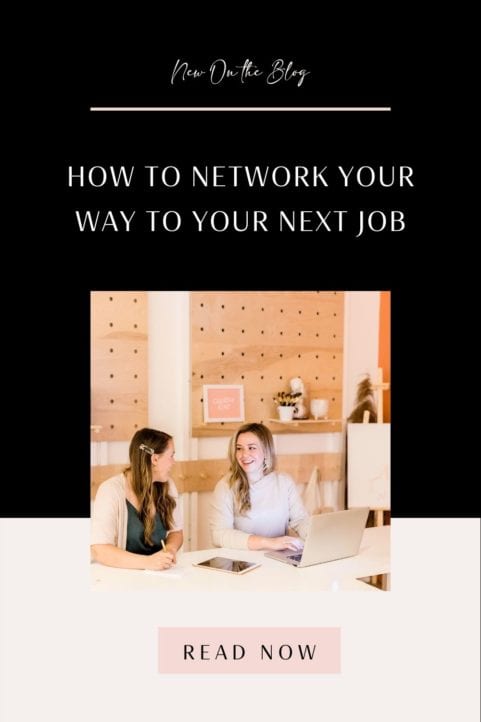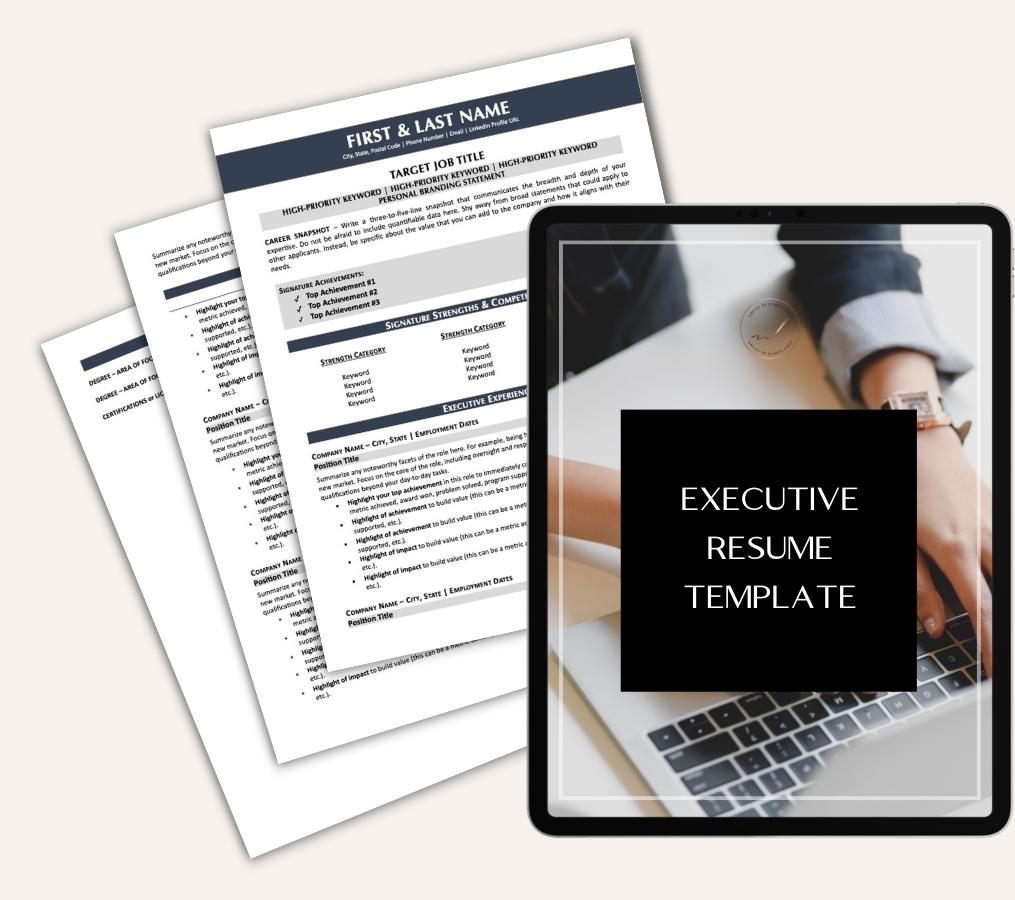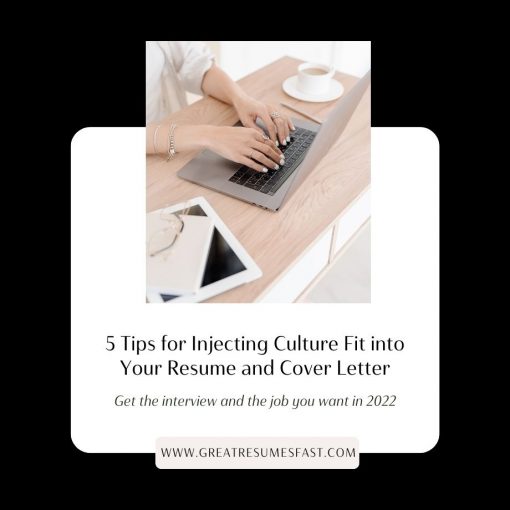How to Network Your Way to Your Next Job
The people you know can be the best way for you to find your next job. The “tried and true” path of networking is still the most successful way to find your next position.
It happens all the time. Someone in your network says, “You know what? You should talk to John Jones at the XYZ Company. They’re looking for someone like you.”
According to Jobvite’s 2021 Job Seeker Nation survey, most workers find out about job openings from friends (45%) and professional connections (31%).
Research consistently identifies networking as an important job search tool—anywhere from 40%-80% of job placements are attributed to networking. Networking can also be a way to identify unadvertised job opportunities—accessing the “hidden job market.” (The “hidden job market” refers to jobs that are not advertised publicly. These positions may be filled through employee referrals, recruiters, or direct contact with hiring managers through networking.) With the right experience and credentials to meet a company’s need, you may even have a job created just for you.
This guide will help you identify who is in your network and how to use these connections to find your next job.

Build Your Network Before You Need It
The single biggest mistake most job searchers make is not asking for help from their network. People want to help you—so let them! But don’t wait until you’re out of work to start developing relationships with your network.
As author Harvey Mackey says, “Dig your well before you’re thirsty.” Develop your contacts, be willing to help these folks with their needs, and they will be there when you need them!
The more people who know you are looking for a job, the more eyes and ears that will be available to help. Networking is about getting the people you already know to help connect you to the people who will help you land your next career opportunity.
You can also tap into your network for specific assistance. For example, if you want to work at a particular company, ask people in your network if they know anyone who currently works for—or used to work for—“Company X.” Then contact that person and ask about the company, culture, and hiring practices.
Who Is Your Network?
The first step is to identify who is in your network. This can include friends, relatives, parents of children’s friends, parents and relatives of your friends, club members, cousins, neighbors, current and previous co-workers and managers, suppliers, professional association contacts, your community contacts (civic leaders, clergy, etc.), and your doctor, financial advisor, or attorney. Your holiday card list, if you have one, can be a good starting point for identifying who is already in your network.
If you don’t already have a list, start one! Make a list of all of your contacts—past employers, vendors, customers, colleagues, competitors, and other people you know. You never know who may have a great lead or know of an unadvertised opportunity.
Then, expand that list. Here are some ideas for other people to add to your network.
Personal Contacts:
• Friends
• Relatives
• Parents of children’s friends
• Parents of your friends
• Relatives of friends
• Club members (country club, swim club, sports club)
• Associations
• Military service personnel
• Sorority/fraternity
• Cousins
• Neighbors
• Sports team members
Business Contacts:
• Current co-workers
• Previous co-workers
• Previous managers
• Consultants
• Vendors and suppliers
• Retirees
• Seminar, conference, and workshop attendees
• Business owners
• Competitors
• Clients/customers
• Venture capitalists
• Members of industry associations
• Contacts you make at conventions and job fairs
Third-Party Contacts:
• Accountants
• Doctors
• Real estate brokers
• Financial advisors and bankers
• Attorneys
• Dentists
• Mortgage bankers/brokers
• Insurance agents
• Travel agents
Educational Contacts:
• Elementary, middle, and high school friends and teachers
• College classmates and friends
• Alumni association contacts
• Graduate school classmates
• Other alumni of your schools
• University career-placement office staff
• Former professors and advisors
Community Contacts:
• Civic and political leaders
• Librarians
• Clergy/ministers
• Chambers of Commerce
• Community groups (Kiwanis, Rotary, Scouts)
• People you meet while volunteering
• Health club members
Assemble the contact information for these individuals and add them to your list.
You can also brainstorm contacts you need to make. Write your desired job target at the top of a piece of paper. Then, make a list of possible employers on the left side of the page. On the right side of the page, make a list of people you know who can connect you with these companies.
Here are some more opportunities to develop your network:
• Attend networking events (for example, those hosted by your professional organization, Chamber of Commerce, and tips groups). Attend association meetings and take advantage of educational opportunities.
• Work as a volunteer. For example, in your industry association, the Membership Committee is a great place to start. The Program Committee (that plans events) or the committee that helps line up event sponsors can also be good choices. Getting involved in any organization is beneficial. Volunteering is one of the best ways to network your way to new contacts.
• Participate in an online community. This can be a social networking site like Facebook or LinkedIn, an alumni site (like Classmates.com), or your trade association’s website (which might have an e-list or message board to connect members).
• Contact your alumni groups. Your college or university should have an alumni association (often with a directory of members) that can be useful. You can mine the directory for contacts in your field, even if they didn’t graduate in the same year as you. Your alma mater connects you.
• Read your local business journal to find out about growing companies. Pay particular attention to the “People” section (the section that highlights promotions and new hires at companies) and see if there are any contacts you can make.
• Reference directories can also lead you to the right people. For example, the Manufacturers’ News (www.mnistore.com) sells databases and print directories of manufacturing businesses and contact information for the decision-makers at these companies.
How to Use Your Network
There are a few ways to use your network to find a new opportunity. The first is to contact specific people in your network—or your entire network—and let them know you are looking for ideas, information, advice, and contacts/referrals. Even if you’re contacting someone with the power to hire you, don’t ask for a job. Ask for advice or assistance, not a job. Create a networking cover letter (samples are included in this guide) and send the letter with your resume to each of the contacts in your network. This is the broadest way to use your network, and can be useful if you are currently unemployed and not worried about jeopardizing your current job by visibly pursuing a new one.
A more effective way to use your network is a more targeted approach. Identify the specific need you have, and then contact people who are in a position to help you reach that specific job goal. The more specific you are about what you need or what you’re looking for, the more likely you are to get what you want.
For example, if you see an advertised opening for a position, go through your network and see who might be able to provide you with access to the hiring manager (or someone else who works at the company), information about that specific company (or the company’s position in the industry), or information about the specific position you’re seeking.
You can use your network contact to make an introduction to a hiring manager—either asking them to pass along your resume to that individual, introduce you directly, or allow you to use their name when making an initial contact.
Technology and Networking
Social media can also be effective for helping you achieve your networking goals. You can let your network know you are looking for a new position by posting status updates on Facebook, LinkedIn, and Twitter. This is particularly useful if you are currently unemployed and you’re not worried about your boss finding out you’re seeking a new position. (Even if you have your social media profile privacy settings locked down, remember that anything you post online can potentially become public information—all it takes is someone you know taking a screenshot of what you’ve posted, or mentioning the information, and it’s no longer private.)
You can also research a potential connection using social media. Find out if the person has a LinkedIn profile, Facebook page, or Twitter account. LinkedIn is particularly effective in helping you take your existing contacts and leverage them into even more networking opportunities. You can see how you’re connected to a company or another individual using LinkedIn.
Use social media to arrange in-person get-togethers. For example, if you make a new contact on LinkedIn, if they are local, arrange to meet them in person. Technology makes networking easier, but face-to-face interaction is still the best way to network.
You can also use technology to personalize your networking, even when you are contacting many people at the same time. (For example, you can use Microsoft Word’s “mail merge” function to create personalized networking letters for each of your contacts.)
Networking Cover Letters
One of the most effective ways to network your way to your new job is to get your resume in the hands of those who are in a position to help you. One way to do this is with a networking cover letter. The purpose of a networking cover letter is to let your network know you’re looking for a position, and ask for specific help. You can send an email or mail the letter and resume.
Here is a sample networking cover letter after a layoff:
Dear (Contact Name):
I am reaching out to you to ask for your help. As you know, my position was eliminated when Chandler-Roth Department Stores was acquired last month.
I am looking to stay in the retail industry and, ideally, remain in the Minneapolis area. My “perfect” job would be another associate manager position—one focused on operations or merchandising (or a combination of both)—in Minnesota or Wisconsin.
I would appreciate any advice, contacts, or industry insights you can share with me. I’ve attached my resume. Please feel free to pass it along to anyone you think may be interested in it. If you know of a company that is looking to grow its retail management staff—or fill any open position—please let me know. I’d also appreciate any recommendations of retail recruiters, or recruiters who work on placing management candidates in the Minneapolis area. (I’d prefer to stay in retail, but would potentially consider a management opportunity in a new industry.)
Highlights of my qualifications include:
• Success in delivering year-over-year same-store growth—contributed to 12% growth in 2020 (well ahead of the industry average for non-food sales growth of 2.26%).
• Introduction of innovative product merchandising and customer service programs that have increased average transaction size by 22%.
• Led an employee engagement initiative that reduced turnover by 18% over a six-month period, reducing hiring costs by more than $22,000.
I’m lucky enough to count you as a (friend, colleague, client, co-worker) and I want to thank you for any help you can give me.
Thanks.
Jon Jobseeker
P.S. — If you’re on LinkedIn, let’s connect on there. You can find my profile at www.linkedin.com/in/jonathanjobseeker
Here is a sample networking cover letter for a job seeker who is relocating:
Dear (Contact Name):
I recently relocated from California to Ohio. Consequently, I am looking for my next challenge! My focus is a management role drawing on more than 15 years of experience in manufacturing and production. I have enclosed my resume, which outlines my qualifications.
I am asking my network—including you!—to help me identify possible employers that would value someone with my experience and skills. My work history emphasizes supervising production teams (up to 30 employees per shift), keeping manufacturing lines operating at peak capacity with a minimum of downtime, ensuring quality and regulatory compliance, and managing special projects.
If you know of someone I should contact to explore an opportunity, I’d appreciate the referral. You can reach me at (phone number) or email me at (email address).
Networking cover letters can also be used to update contacts about a job search:
Dear (Contact Name):
Happy Spring! I wanted to drop you a note to give you an update on how things are going in my job search. Since leaving ABC Company in January, I completed two short-term contract projects, most recently with XYZ Company. I’ve applied for several full-time accounting positions, but have been finding things to be a bit slow. So now I’m turning to my friends-and-family network for your help!
I’ve enclosed an updated copy of my resume in the hopes that you might be able to help me identify and/or make contact with a company or organization that might need someone with my skills and experience. While I’m most interested in a full-time position, I’m also open to a contract opportunity—particularly one that might lead to a full-time position.
If you know someone who might be interested in what I can do for them, would you mind passing along my resume? And give me a call if you have any ideas for me, or if you want to catch up on things. You can reach me at home (phone) or on my cell (phone).
I appreciate your help!
Informational Interviewing
Get to know people who can help you find your next job—not necessarily the people doing the hiring, but the people who know those people. Make connections with local business leaders, government officials, bankers, angel investors, venture capitalists, commercial real estate professionals, and others who can network you into the top opportunities within the area. Ask for the opportunity to meet with them to learn more about a specific company, opportunity, or the industry. Make it clear you are not asking them for a job—only for information that may be useful to your job search.
Consider contacting members of the professional associations to which you belong. Your colleagues can be a tremendous asset in helping you find unadvertised opportunities. Write a letter or email them asking for their help and assistance. You want contact names and numbers, ideas, and company information. Be sure to ask if you can mention their name to “get in the door” with their contacts to arrange an informational interview.
Use your time wisely. Prepare a list of questions to ask in the informational interview. Ask questions related to the type of work required in the position, what kind of preparation is required for success in the job, which skills are used most often in the job, what qualities are appreciated in successful employees, and what the individual thinks are the prospects of finding a position in this field.
Be sure to ask questions that allow the person you’re interviewing to talk about themselves. How did they get started in the field? What is their educational background? What do they wish they knew when they got started that they know now? What is the toughest part of their job? What challenges/problems do they have that need solving?
Get business cards from these contacts and write a personalized thank-you note. Follow up with your resume and cover letter only when appropriate, or if you’re asked to provide them.
Networking in a Confidential Job Search
Ever been surprised when a friend announces a new job and you didn’t even know they were looking? You can use networking even when you’re quietly searching for a new position. However, be aware that the more people who know you’re looking for a new job, the more likely your current employer is to find out about it.
One way to avoid this is to build your network even when you’re not searching for a new job. Again, listen to Harvey Mackey’s advice to “Dig your well before you’re thirsty.” Having a robust network can also help you be more effective in your current position, by giving you access to people who can help you solve the problems you face in your daily work.
Contact members of your network individually about your job search instead of mass messages or social media updates. Let your contact know that you are conducting your job search quietly, and ask for their help in keeping your search confidential.
If your primary purpose of networking is for your job search, don’t network on company time or using company resources. And never use your company email to send emails to your networking contacts.
When you are updating your LinkedIn profile as part of your job search, update your profile and slowly add new contacts. Don’t add everything all at once. And be sure to turn on LinkedIn’s privacy setting about sharing notifications before you change your profile or add a bunch of new contacts.
In your LinkedIn account, in the upper right-hand corner of the page, access the drop-down menu under your name and choose the “Settings” option.
On the main menu, click on your photo, and when the drop-down menu appears, click “Settings & Privacy.”
On the “Settings & Privacy” page, click on the “Privacy” link in the middle of the page. This will access the privacy settings on your account.
Once on the Privacy page, review all settings, but pay particular attention to “Share job changes, education changes, and work anniversaries from profile.” Click on the “Change” link next to that item.
You can choose whether your network is notified about your profile changes. If the setting is on, your connections will receive notifications when you add information to your profile or change the content. As you build your LinkedIn profile, this can trigger many notifications. And, if you’re conducting a stealth job search, it can draw unwanted attention to your LinkedIn profile. As a general rule, you will want to turn off notifications when updating your profile. Slide the setting to “No.”
Later on, you can turn these notifications back on and adjust your privacy settings. But for now, just make sure this is changed to “No.”
Keys to Success
Do you wonder why some people are more effective using networking to find their next job? Here are some keys to success in using networking in a job search:
- Don’t wait until you need a job to build your network. You should constantly be building—and strengthening—your connections with your network. One of the easiest ways to do this is using LinkedIn. One of the most effective ways to improve your network, however, is through personal contact. Do something to build your network each and every day, whether that’s sending an email to someone you haven’t talked to in a while, or identifying someone new you want to meet.
- Ask for help. Most people will be happy to help you—but you need to ask!
- Be specific in what you’re asking for. A specific request for assistance (“Does anyone know someone who works in the accounting department at Company X?”) is more likely to be fulfilled than a general request (“I need a new job! Help!”).
- Prepare for networking. Have business cards made that are strictly for networking. You can have cards made inexpensively on VistaPrint (https://www.vistaprint.com/business-cards/ or use a more upscale option like Moo Cards (https://www.moo.com/us/business-cards).
- Follow up. If a networking contact gives you advice, a lead, or information, follow up on that information—and then also get back to that person to let them know how it went.
- “Give to get.” By helping people who ask you for assistance, your network will be stronger when you need it.
When You Get Your New Job
After you land your new job, be sure to thank your network—especially contacts that have specifically helped you with your job search. Send a personal note to everyone who assisted you in your search, and consider sending or giving a small gift to those who were of particular help. And don’t forget to spread the word that you’ve accepted a new opportunity.
Don’t neglect your network just because you found a new job. One of the most important parts of maintaining your network is providing assistance when you are asked. Be responsive to requests for help from folks in your network when you are asked. Every person you meet is a potential networking contact. But networking is a two-way relationship. Don’t just see your network as contacts—see them as people. Learn about them and what they do.
Heed the advice of author and networking pro Harvey Mackey: “If I had to name the single characteristic shared by all the truly successful people I’ve met over a lifetime, I’d say it is the ability to create and nurture a network of contacts. A network replaces the weakness of the individual with the strength of a support system. You don’t have to know everything as long as you know the people who do.”
If you are looking for strategies to implement to get a referral for your next role, have a look at How to Get a Referral for a Job.
Also check out this article on important steps to take before you begin networking: What to Do Before You Network?
Share this post:

About the author
Jessica Hernandez, President, CEO & Founder of Great Resumes Fast
Hi, I’m Jessica. I started this company back in 2008 after more than a decade directing hiring practices at Fortune 500 companies.
What started as a side hustle (before that was even a word!) helping friends of friends with their resumes has now grown into a company that serves hundreds of happy clients a year. But the personal touch? I’ve kept that.
You might have seen me featured as a resume expert in publications like Forbes, Fast Company, and Fortune. And in 2020, I was honored to be named as a LinkedIn Top Voice of the year!
I’m so glad you’re here, and I can’t wait to help you find your next perfect-fit position!
Improve Your Resume: Download Your Free Executive Resume Template Today
Are you struggling to create an executive resume that will impress employers? Download this free executive resume template and receive a series of 10 emails with expert guidance on how to write resume content that resonates with employers so you get more interviews.
It's everything you need to stand out, make an impression, and accelerate your job search.








